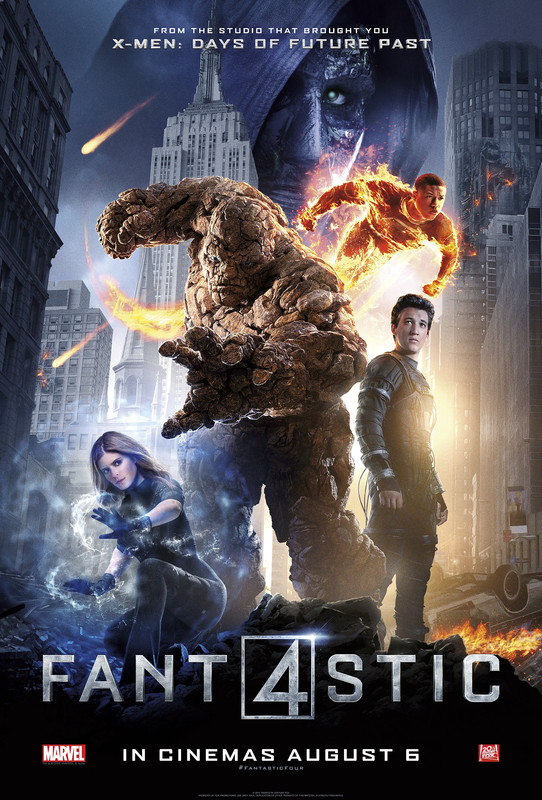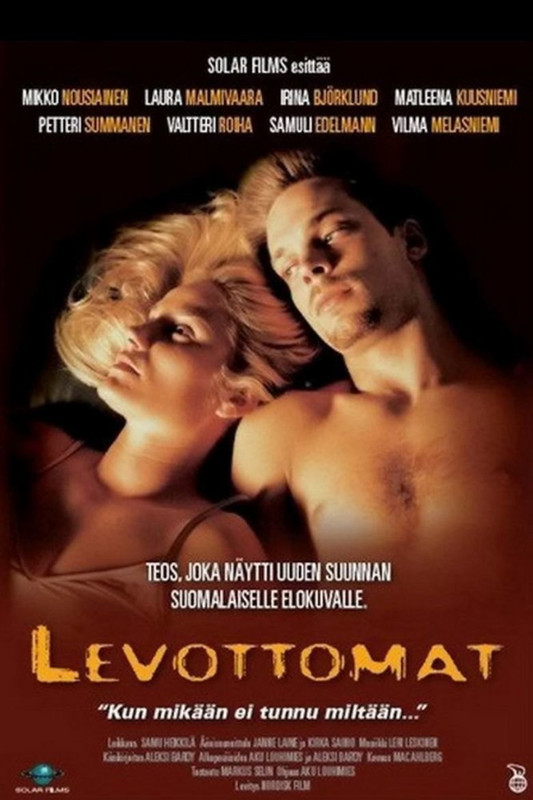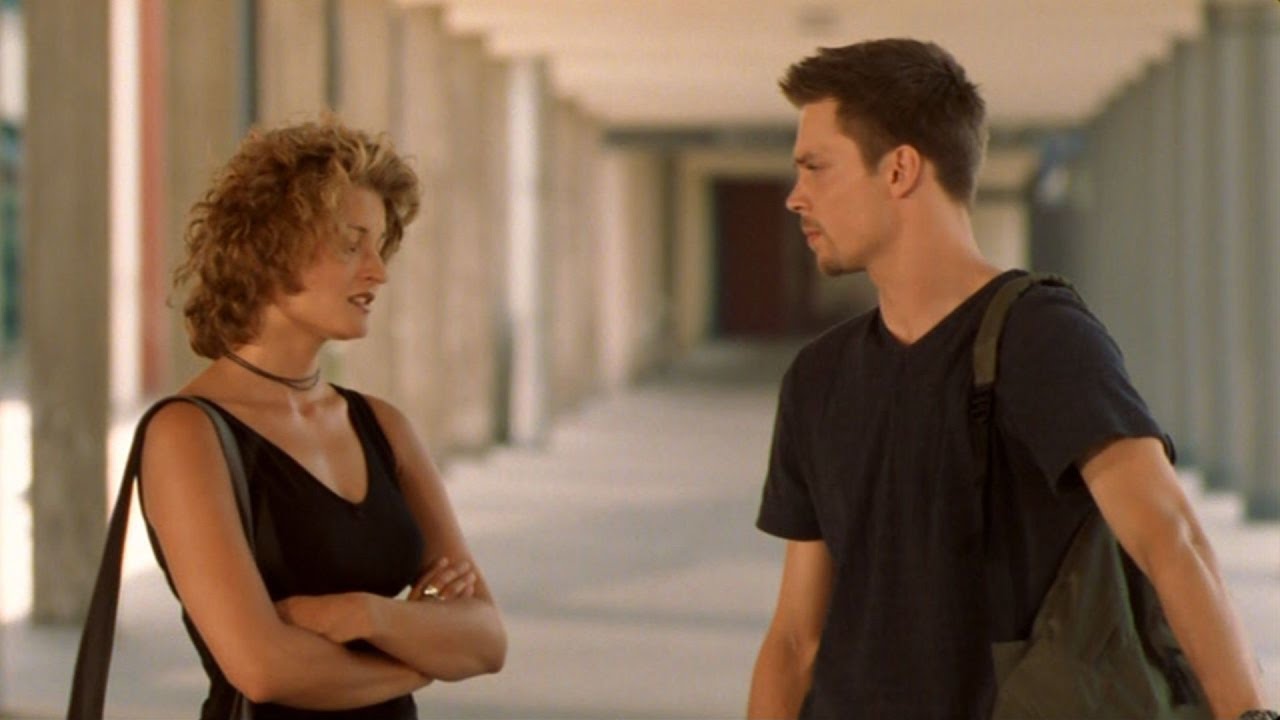Fantastic Four [2015] [12]
Dir: Josh Trank
The Fantastic Four comic series has a fascinating big screen history, if only because, of four attempts to put the characters on screen, not a single one has managed to capture anything that seemed to explain why it was worth trying in the first place. The first version, never officially released, was a cynical rights holding move by Roger Corman. It was made for $7 and hot meals for the cast (citation needed) and is about as awful as you'd imagine. It's also by far the best version. This was followed by 20th Century Fox's first attempt at starting a franchise, with director Tim Story helming both Fantastic Four and its sequel Rise of the Silver Surfer. They were successful to a point, but horrendously miscast and entirely forgettable.
That brings us to this film... a cynical rights holding move by 20th Century Fox, who engaged Josh Trank, director of cult found footage superhero movie Chronicle, to make his big budget début. To say that the result, from production to final product, was and is a total clusterfuck is perhaps to be too kind. However, that doesn't mean that Fantastic Four 2015 - as a thing if not as a piece of drama - isn't interesting.
Fantastic Four fails at just about every level possible, and while it is easy to see that (and indeed when) the film was largely wrested from Trank's control, there is still plenty of blame to go around. It is not hard to see why executives would have thought that this film needed to be taken away from its director and his creative team. Throughout it seems imbued with a catastrophic lack of energy. The screenplay gorges itself on setup. To begin with, that doesn't work, partly because it suggests that 2014 Miles Teller (26) and Jamie Bell (28) are 17 or 18, which is laughable, but also because the backstory establishes very little about the characters.
A screenwriter generally has to start with a blank page, that's not the case here, Trank and his co-writers have 50 years of comics to draw on, but what they come up with largely remains a blank page. Reed Richards (Teller) and Ben Grimm (Bell) are bland presences. Reed's one trait is that he's nerdy, which certainly marks him out among scientists working on inter-dimensional travel and Ben seems stripped even of his comic book toughness. Michael B. Jordan does what he can with the one note irresponsible daredevil he has to play as Johnny Storm, and contributes the film's best performance by coasting on his innate charisma. Kate Mara draws the short straw. Her Sue is consistently relegated to the back seat, she's pitched as a brilliant scientist but her biggest contribution to the mission that sends the team to another dimension seems to be in making their suits. Yes, it's more complicated than just having her do the sewing, but the symbolism is as loud as it is unintentional.
The first 40 minutes, before the characters travel to the other dimension (which is where, in this telling, they get their powers) should be setting up the four as individuals and as a team but - aside from a few unconvincing glimpses of Reed and Sue being attracted to each other so Toby Kebbel's Victor Von Doom can add jealously to ambition and generally being an asshole on the list of reasons he's the villain - it does no such thing. If Trank and the screenwriters had attempted to colour these characters in then the attempt at a down to earth, credible, take on this superhero origin story might have worked, but because they are so loosely sketched it is like watching them move cardboard cutouts around while explaining what's happening.
The tedious screenplay leads to another hobbling problem: the cast seem bored. Jordan at least tries to inject some exuberance into proceedings, but the downbeat tone, weak dialogue and characters, and by the numbers progression seems to sap the life from Miles Teller and Kate Mara in particular. Reed Richards and Sue Storm are one of the most famous couples in the Marvel Universe. It's important that, even if we don't see them as a potential couple, we understand why Doom does. Nothing about their interactions - more redolent of two people who have just met and are trying to pass time in after school detention than a potential couple - makes this remotely credible.
This is also reflected in the film's visuals, which are the typical teal and orange tediousness that so many would be blockbusters seem to be required to use. Trank injects no personality into the visuals, nor into the film as a whole, the corporate mandate drips from every frame even before the abrupt shift that seems to signal the moment that Fox put their director on a leash. The effects are at least competent, with The Thing looking the best he has ever looked on screen (though Jamie Bell's voice is hilariously mismatched with the post-transformation Ben) and The Human Torch looks good thanks to some surprisingly decent CGI fire (still something many films can't do well). These things and other solid effects suggest the film's sky high budget and solid tech team, so it's odd to see a simple, glaring, error in the visuals. Kate Mara's wig is awful, absolutely awful. How does something that basic slip past in a film of this scale?
Ultimately I think it's - alongside the script and performances - an indication of a lack of passion that seems to pervade the film. The overwhelming impression is that of a company and a group of filmmakers working on a placeholder; something that will let them have a crack at doing this right in a couple of years time.
The film hits a lot of the expected beats: background, characters get powers, characters explore/moan about powers (in a sequence that could have been expanded upon quite interestingly, both in terms of its body horror and if it had engaged with politics that lay behind it, but which is dropped like a hot stone), but it does this without building up a villain. This is when the change in the film comes; as the third act opens a 'one year later' caption seems to end the film we've been watching (fine, I was bored) and start a new one, which is even more by the numbers and reintroduces Kebbell's Dr Doom. It's as if someone put a post it note in the screenplay that said 'insert generic end battle'.
The third act is an absolute mess. Doom's powers and motivation are ill defined, as is the way that the four, who he initially bats away with no seeming problem, should be able to defeat him (spoiler, it involves precisely no use of their apparently massive intellects). The plan that Doom uses to threaten the world is nonsense that feels like back of a napkin screenwriting, and the fact that the film to this point has barely engaged with the real world means that it has absolutely no weight or connection to anything of greater scale. I can see why execs wanted to take this boring and underpowered film away from Josh Trank, but you'd like to have imagined that if they were going to bother, they'd have ideas that would improve the thing.
Fantastic Four is a dull and derivative superhero film, made with absolutely no passion, but as a demonstration of how the modern Hollywood system works (or doesn't work) it is fascinating. Still, I'd rather see an honest documentary about it than this film itself.
★
★
Levottomat
Dir: Aku Louhimies
The first of a loose trilogy, linked thematically rather than by characters, filmmakers or story, Levottomat was the college project of Aku Louhimies, writer Aleksi Bardy and editor Samu Heikkilä. For a group of young filmmakers, as a graduation piece, this is accomplished and confident stuff, but it does also betray its origins at times.
The film centres on Ari (Mikko Nousiainen), a paramedic in his mid-twenties working in Turku, Finland. Ari remains largely emotionally disconnected from the world, especially when it comes to relationships, in which he has a policy of never sleeping with the same woman twice. That begins to change when he meets Tiina (Laura Malmivaara). Ari tells her what he's like, but Tiina wants to try to make it work and eventually introduces Ari to her friends, including free-spirited Ilona (Matleena Kuusniemi) and theology student and trainee priest Hanna-Rikka (Irina Björklund), both of whom Ari has affairs with.
The title Levottomat is translated literally in the credits as 'Restless', that's certainly a neat encapsulation of the state many of the characters are in, either as the film starts or as the events of the plot unfold. Ari's restlessness comes in his inability to commit or even to truly feel any emotion. Tiina's restlessness comes from Ari's and the fact that he doesn't seem to have the emotional capacity to be in the relationship she wants. Hanna-Rikka's restlessness comes from reconciling her belief with much of what she sees around her and with her own feelings for Ari. The theme echoes in all of the other characters as well, perhaps to too great a degree.
When it works, Levottomat is extremely engaging. The dynamic between Tiina and her friends (a group also including Ilona and Hanna-Rikka's boyfriends, played by Petteri Summanen and Valtteri Roiha) is convincing, as is the way that they are initially a little suspicious of Ari, but slowly allow him into the group (though this does begin to strain credulity in the third act). Having six main characters does mean that some go underdeveloped, with less time given to the boyfriends and to Hanna-Rikka's religion. I think the implication is that as Hanna-Rikka struggles more to contain her emotions she turns more towards her religion, but early on this isn't given the import that would allow it to develop more as a theme in her scenes. There is an interesting bit of background here, perhaps coincidental, perhaps not, in that Laura Malmivaara, who married Louhimies in 2003, studied theology for a time before becoming an actress.
Whatever the strengths and weaknesses of the writing, the acting is largely excellent. It would be easy to play Ari's detachment as robotic, emotionless, but Mikko Nousiainen brings rather more to it than that. There is a sense of emptiness at the heart of his performance, but it's something in the character rather than in his acting. Aside from Nousiainen it is largely the film's women who have the most developed roles, and they all acquit themselves well. Laura Malmivaara is affecting as Tiina, making us feel for her even as we know that the emotional cost of her decision to pursue Ari is inevitable. As the flightier Ilona, Matleena Kuusniemi is sexy and seductive, but never overblown. It would be easy to play Ilona as a one note seductress out to score with Ari, but the script and performance are somewhat smarter than that. While, as I mentioned above, Hanna-Rikka isn't quite so well developed as some of the other characters, Irina Bjorklund still makes her an interesting presence from scene to scene. If her performance comes off weaker it's because her characterisation, as written, is sometimes slapdash and developed in fits and starts. That said, she's the most interesting character by the third act of the film and probably the one I'd most like an update on, 16 years later.
At times Louhimies' film is overstuffed. For instance, the scene in which, having been thrown out by Tiina, Ari goes to stay with his paramedic friend, only to find him drunk and with a gun in his mouth. This scene serves only one plot purpose (which itself could easily be lost) and frankly, it seems a bit much. Levottomat is not a terribly happy film, but there seems little purpose to piling these 10 minutes of misery on, particularly as they never rate a subsequent mention.
As much as it's about the complexities of the relationships and the emotions of this group of characters, Levottomat is about sex, and it approaches this theme with what is a typical Scandinavian frankness, at times bordering on hardcore. There are nude scenes that tend toward titillation, but for the most part these are character scenes, often about the emptiness for Ari of what ought to be a moment of connection. The best of these scenes may be the one between Ari and Hanna-Rikka. I got the sense that Hanna-Rikka is trying to adopt some of Ari's detachment, but finds that she can't (something that comes through strongly in the next scene).
For the first 80 minutes or so, Louhimies keeps everything grounded. His technique isn't sophisticated, but it's unobtrusive enough to serve the story. In the third act, however, as the characters convene for Ilona's wedding, things take a turn for the melodramatic and a few cringeworthy scenes ensue. This is the only time the actors seem out of sorts (Malmivaara in particular overacts a few late moments), but even here there are strong moments, such as a quiet scene between Nousiainen and Bjorklund.
On the whole, Levottomat is flawed, it feels like a debut, but there's also a degree to which it's okay for the film to be messy, because it's about people whose lives are messy. I'd like to see what Louhimies went on to from here, because for all the bits that clunk there is a lot of promise, especially in his work with actors. If you can, this is worth tracking down.
★★★
★★★





No comments:
Post a Comment